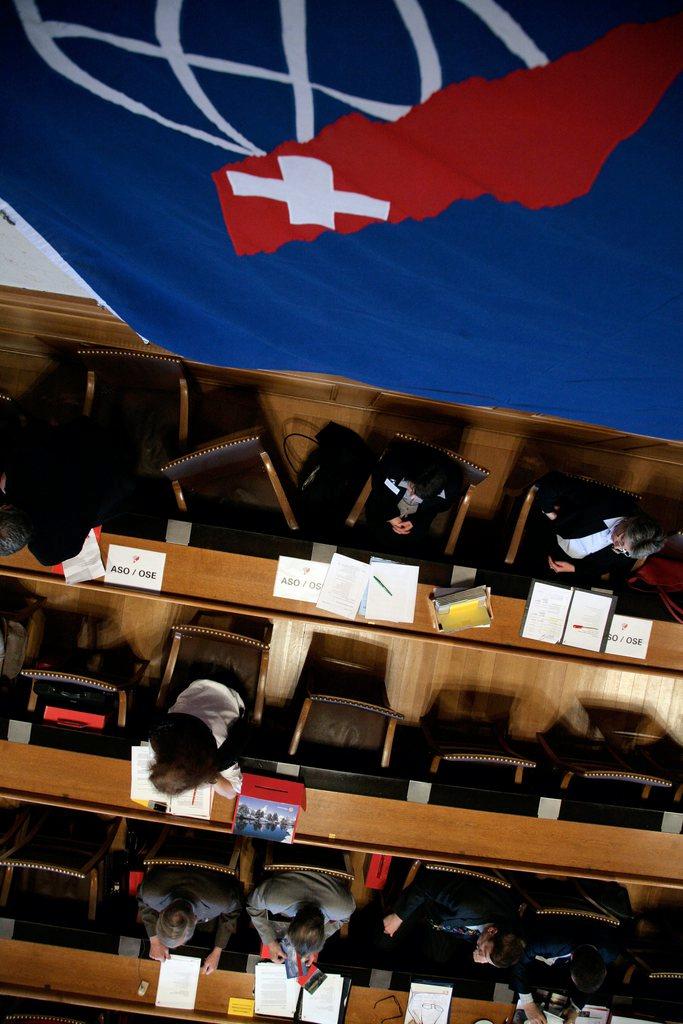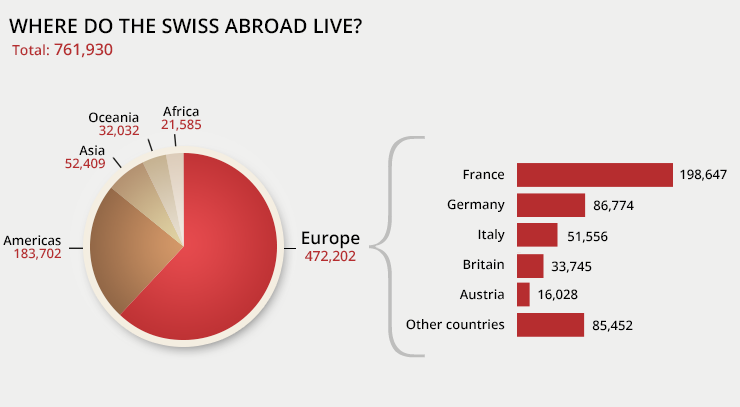
Mandatory registration upheld for Swiss expatriates

Parliament has approved a new law on the Swiss Abroad consolidating the interests of the growing Swiss diaspora and maintaining the requirement that expats register with the government, despite foreign ministry opposition.
The House of Representatives on Monday followed the Senate in voting in the law and ironing out the last few differences of opinion between the two chambers.
One of the most controversial issues, the mandatory registration of the Swiss Abroad, was finally agreed upon at committee level. The House had previously sided with the foreign ministry in wanting to make the registration voluntary.
More heavily debated on Monday was a proposal from the centre-left Social Democrats and the Greens which tried to set rules for the Organisation of the Swiss Abroad (OSA) and improve the democratic representation of the 140-member Swiss Abroad Council.
However, the House rejected that plan with 120 votes against 54 and two abstentions.

More
Swiss citizens live in all corners of the world
Registration required
The Swiss Abroad law was sponsored by Senator Filippo Lombardi, who praised its passage as a step forward.
“It will boost the Swiss expats and the OSA representing the 732,000-strong community,” Lombardi commented.
He added the law represents the recognition of the diaspora as a resource for Switzerland and no longer as a burden.
Ariane Rustichelli and Sarah Mastantuoni, the two OSA co-directors, were also pleased to see that parliament insisted on the mandatory registration.
“It was a crucial element and a refusal to include such a clause would have deprived the law of its core,” they said.
The OSA had argued that it is crucial to know the whereabouts of individual expatriates in cases on conflicts and disasters. The Swiss Abroad Council, meeting in Aarau in August, unanimously passed a resolution calling on parliament to keep mandatory registration.
The foreign ministry, for its part, argued it made little sense to enshrine a registration duty in the law if violations cannot be enforced.
Instead, opponents argued it should be up to the individual member of the expat community to register voluntarily as part of their civic self-responsibility.
E-voting on the way
The new law unites four existing laws and numerous regulations into one document. Some issues adopted from existing legislation include social security matters – notably the payment of old age pensions – consular protection of Swiss expatriates and, in principle, a legal basis for assistance in cases of kidnapping.
In addition, the new law provides for the right of registered members of the Swiss Abroad community to use electronic voting to take part in nationwide votes and elections.
Just over half of Swiss expats will be able to participate in next year’s parliamentary elections, casting their ballot sheets via computer. Promoters hope that data security concerns will be resolved to allow the entire registered diaspora to use e-voting by 2019.
The bill paving the way for the new law was drafted by a Senate committee over the past two years following a proposal by Lombardi who is also a leading member of the Swiss Abroad Council.
However, at one point in the parliamentary proceedings, the two chambers were at odds over the details in the law, prompting concerns that final approval might be delayed.
Right to an account
Last week, the House of Representatives agreed to give the Swiss Abroad the right to open a bank account in Switzerland. Under the proposal the majority state-owned Post Finance has to provide Swiss expatriates with an account to keep their savings, pensions or other declared funds. The Senate still has to discuss the proposal, which has been rejected by the cabinet.
The Council of the Swiss Abroad in August passed a resolution unanimously, putting pressure on parliament to act.
An estimated 100,000 expats could benefit from a guarantee for an account with Post Finance.

In compliance with the JTI standards
More: SWI swissinfo.ch certified by the Journalism Trust Initiative




























You can find an overview of ongoing debates with our journalists here . Please join us!
If you want to start a conversation about a topic raised in this article or want to report factual errors, email us at english@swissinfo.ch.